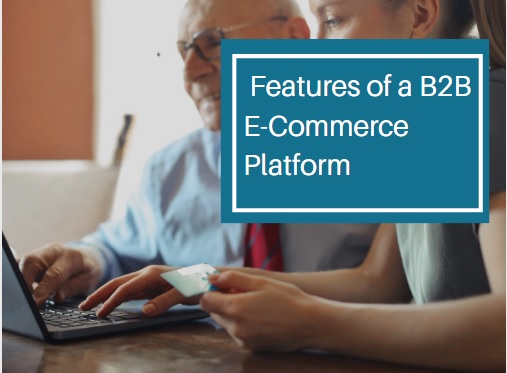Features of a B2B E-Commerce Platform
Online
marketplaces have grown over time. During the COVID-19 pandemic, most people
shifted their business online to stay relevant. Most customers also opted to
shop online, especially during lockdown season.
If
you're a business owner, using a B2B ecommerce platform can help you transition
smoothly to setting up your online shop. These platforms have some amazing
features, which we will review in a bit.
Features of a B2B E-Commerce Platform
Multiple Payment Gateways
You
will need a system that supports different payment gateways if your business is
targeting global customers. Different countries use varying currencies, so your
system needs to provide real-time price updates depending on Forex markets.
Pricing
and payment can be tricky to handle when setting up an online shop. Here is
where a B2B ecommerce platform comes in. The platforms available help you
customize your pricing and payment gateways to match your customers’ needs.
Cloud-Native Support
It
would be best to think about scalability when it comes to hosting services. A
B2B ecommerce platform with cloud-native support is easier to deploy and
manage. These platforms have automated web services designed to handle feature
updates.
In
addition, data security is also better compared to using third-party hosting
services. As a B2B owner, you will handle a lot of data, including the
sensitive credit information of your customers. One of the best B2B e-commerce
solutions, Virto
Commerce, uses Azure cloud services.
User Experience
Most
online shoppers are impatient, and if your site loads slowly, you will lose
many potential customers. Your platform needs to be lightweight and responsive.
Remember, many people who visit your site do so using smartphones.
Almost
all B2B e-commerce platforms are mobile-friendly and responsive. In addition,
business owners can customize the storefront to match their brand. Besides
customizing the storefront, you can also integrate new APIs to boost customer
experience.
It
is always advisable to hire a UI/UX designer to help build your storefront.
Things such as design, color, and product placement will matter a lot. A good
user experience will make your customers return and spend more time shopping on
your platform.
Analytics and SEO
A
good B2B e-commerce platform should have in-built SEO support. SEO is the
backbone of online marketing and creating brand awareness. The SEO tools will
help you optimize everything on your site, including product descriptions and
images.
Analytics
tools are also very important as you will always want to adjust things to boost
sales. Most e-commerce platforms use Google Analytics to track customer
behavior and website performance. You will also find marketing tools such as
email marketing or coupon APIs that will help you run periodic marketing
campaigns.
Wrapping Up
Starting
a B2B business can be challenging. However, if you have the right tools, the
process will be easier. You also need to consider issues such as customer
experience and relationships.
We
encourage you to do in-depth market research to find the best solution in the
market. There are plenty of open-source B2B e-commerce platforms packed with
decent features to get you started. However, you will need to hire developers
to work on the storefront.












No comments
Note: Only a member of this blog may post a comment.